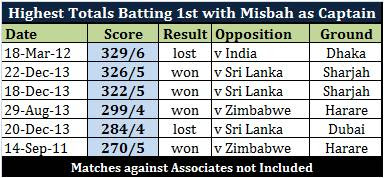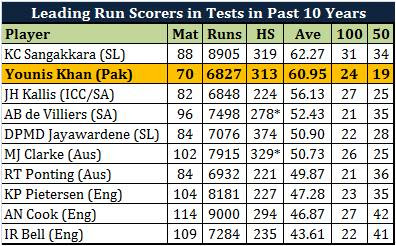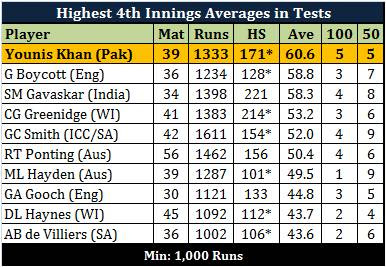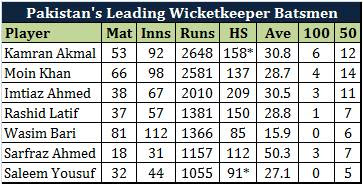Pakistan must be applauded for their ODI series win over Sri Lanka
This article first appeared on DAWN.
Pakistan were well and
truly hammered in the 5th ODI against Sri Lanka but it must not overshadow what
was a remarkable series win in the Island after 9 years.
This was also Pakistan's
first ODI series win against a top eight side since December 2013. Yes,
Pakistan had gone on for a year and a half without winning a bilateral ODI
series against a what can be termed a ‘top tier’ team.
There is no reason why the
players and fans should not rejoice this victory. For a long time we had been
witnessing an under achieving Pakistan ODI team. During this series we all
witnessed some of the best ODI cricket Pakistan has played in the past few
years. At least in terms of their batting.
With the series won 3-2 and
the Zimbabwe tri-series not going ahead as proposed earlier, Pakistan has also
sealed a berth in the Champions Trophy 2017 (assuming West Indies don't play
any ODIs till 30th September). After being whitewashed 3-0 at the hands of
Bangladesh and facing potential exclusion from the Champions Trophy, this ODI
series win could not have come at a better time for Pakistan.
Despite the convincing run,
there has been plenty of noise from some skeptical fans who are under the
illusion that Pakistan won this series only because they were up against a
significantly weakened Sri Lankan team.
These fans could not be
more wrong.
Surely the retirement of
Kumar Sangakkara and Mahela Jayawardene has left a massive hole in the Sri Lankan
team, but the team that took on Pakistan in the ODI series was not
inexperienced. Definitely not when compared to the Pakistan ODI team.
Compare the batting line
ups of the two teams and you will realise that Sri Lanka's top 7 have played
almost double the number ODIs and scored almost double the number of runs than
Pakistan's top 7. In fact, Tillakaratne Dilshan alone has scored 75% of the
runs that Pakistan's top 7 have scored on a collective basis!
Similarly, comparing the
bowling line ups of both the teams shows that Lasith Malinga and Thisara
Perera, individually, have played more ODIs and picked up more wickets than
Pakistan's entire bowling attack. There is no comparison between the experience
of the two bowling attacks. It is quite clear which team was the inexperienced
one out there.
If Sri Lanka were hampered
due to the absence of their two batting stalwarts, what about Pakistan? Were
they not hampered by the absence of Misbah-ul-Haq and Shahid Afridi, their two
most experienced ODI cricketers of recent times?
Moreover, do not forget
that Angelo Matthews has captained Sri Lanka in thrice as many ODIs than Azhar
Ali has even played in his career.
Azhar Ali entered the
series having lost his two premier pacers to injury and his premier spinner to
a changed and ineffective action. Furthermore, he even lost the bowling
services of Mohammad Hafeez, one of Pakistan's most effective limited overs bowler,
to a ban on his action in the middle of the series.
Sri Lanka was clearly the
more ‘stable’ but in the end it boiled down to better execution of plans and
skills.
Pakistan excelled in
batting and fielding, two facets of their ODI cricket that had constantly
failed them over the past few years. There is absolutely no doubt in my mind
that Pakistan played some of their best and most consistent ODI cricket in five
years to win a series that not many gave them a chance to.
The effort cannot be
discounted by illogical reasons like “Sri Lanka was playing their most
inexperienced side ever”. If anyone was playing an inexperienced side, it
was Pakistan.
Another reason being cited
for Sri Lanka's loss is their players' sudden drop in form.
Does anyone think that
Pakistan won their ODI series in India (2012) and South Africa (2013), the only
two ODI achievements in Misbah's 4-year tenure as captain, were achieved
because Kohli, Gambhir, Sehwag, Yuvraj, Raina, Amla, Smith, AB, and Kallis were
out of form? Not at all. Those victories were achieved because Junaid and Irfan
bowled beautifully and made those batsmen look like rabbits for the most part
of each series.
Similarly, Pakistan's
batsmen, namely Hafeez, Shehzad, Malik, Rizwan, Sarfraz, and Azhar himself batted
brilliantly in this series against Sri Lanka and made their bowling attack look
pedestrian. Pakistan have not batted in this manner in an ODI series for a long
time; and definitely never this consistently in any series under Misbah.
Impressed with Pakistan's
ODI batting resurgence, I wrote an article after the 3rd ODI between Pakistan
and Sri Lanka comparing Pakistan's batting under Misbah's captaincy to that
under Azhar Ali's. Following that, several other articles also came up during
the series that analyzed possible reasons for Pakistan's unexpected batting
form.
While I agree that any
comparison between the ODI captaincies of Misbah and Azhar Ali is premature
given that Azhar has only captained in 11 ODIs, I am also absolutely certain
that Azhar's leadership has brought about a change in mindset and approach that
had been missing from Pakistan's ODI cricket for the past 4 years.
No one expected Azhar Ali
to be an aggressive leader. No one expected Azhar Ali to change his style of
batting for ODI cricket. Everyone expected Azhar Ali to be another Misbah-like
batting anchor who would occupy the crease endlessly and meaninglessly.
How Azhar has defied all
such expectations!
Not only has he adopted a
more aggressive style play, he has instilled the same sense of urgency in his
batsmen. Following his match winning knock in the 4th ODI, Ahmed Shehzad spoke
about how he and the other batsmen were looking to change the way they had been
batting in ODIs in the past.
There will always be
arguments for and against Misbah's approach to ODIs, but one thing is
absolutely clear - there is a conscious effort being made by every single
batsmen in Pakistan's ODI line up to play a more aggressive brand of cricket
and that effort is being led by their new ODI captain.
And there is no one who can
deny that it is this brand of cricket that Pakistan was always known for and
that it was dearly missed during the 4 year tenure of Misbah.
















































.jpg)

